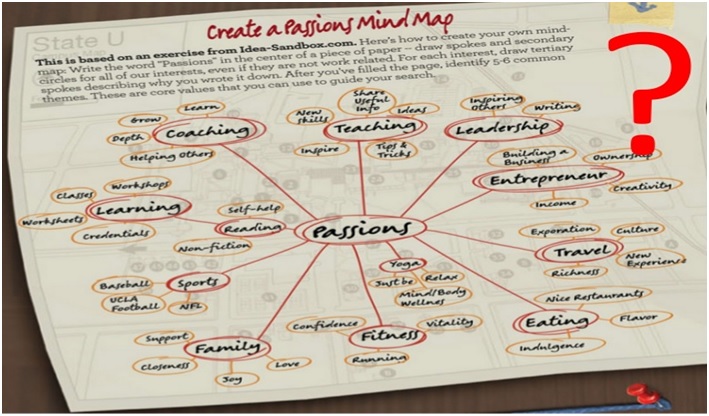
Individual Development Plan (IDP): Evolve to Become A Better Person!
Words by Derry Fahrizal Ulum (FL003 Jakarta)
“Be the change you want to see for yourself!†-Ghandi-
You can’t always change what somebody else is doing. You can’t force people, things or situations to assist in your personal direction in the way we want them to. But, if we have problem or goals ahead you, we have to take a step back and look at ourselves; because that’s the only thing we can change.
To pursue your (personal) goal, in XL Future Leaders, we are provided by a tool called Individual Development Plan (IDP). An individual development plan (IDP) is a tool that helps facilitate students’ development. It’s a self-commitment by every student, mentored by facilitator, on what their future goal. IDPs are often used as a way to drive leadership development. I like the concept of IDP because it is visible, tangible evidence that leadership development is taking place. It can be monitored and tracked as a measure of progress, used as a way to drive accountability for development, and most importantly, if it is well written and taken seriously, it really do work!
I’ve written my own individual development plans (IDPs) for leadership and career development, I’ll draw on my experience from having helped couple of leaders (well, my friends though) preparing their IDPs, shared with them about my own personal experience with my own IDPs (rule number one: if you’re going to help someone else write an IDP, you’d better have current one yourself!).
How’s My IDP?
I am an alumni from Universitas Indonesia (Social Wefare Degree, Faculty of Social and Political Sciences), and XLFL as well, which is not an easy way to get through the journeys ahead me. I’ve always been a strong proponent of the importance of having a written individual development plan (IDP) for leadership (or self) development. That is, identifying:
•   What you want to get better at
•   How you’re going to do
•   When you’re going to do
I have one. My facilitator makes sure we have one. The idea is often met with resistance. I hear things like “I’m developing all the time, why do I need to write it down?â€, or “I don’t have time to do thatâ€, or “That’s just some form makes us fill out… it’s worthlessâ€, and on and on.
There’s some truth to all of these comments. Perhaps at one time you were forced to make one, or maybe someone even wrote one for you. Maybe it was the last page of a performance appraisal. There was little substance, little buy-in, and it really was just extra work that no one has time for.
I heard a story that convinced me of the power of having written goals that I often tell to try to get people over this hump. It turns out I’ve had a few of the facts wrong, but it’s been close enough to often make the point and change some minds. In the book What They Don’t Teach You in the Harvard Business School from Dan McCarthy article, Mark McCormack tells a study conducted on students in the 1979 Harvard MBA program.
In that year, the students were asked, “Have you set clear, written goals for your future and made plans to accomplish them?” Only three percent of the graduates had written goals and plans; 13 percent had goals, but they were not in writing; and a whopping 84 percent had no specific goals at all.
Ten years later, the members of the class were interviewed again, and the findings, while somewhat predictable, were nonetheless astonishing. The 13 percent of the class who had goals were earning, on average, twice as much as the 84 percent who had no goals at all. And what about the three percent who had clear, written goals? They were earning, on average, ten times as much as the other 97 percent put together.
While this story is about financial goals, the same concept applies to leadership development goals. You can sit back and float though life hoping you’ll get better as a leader. And if you’re lucky, you will. Development will come to us. But why not increase your chances of success ten times simply by putting your development goals in writing? Do it. It’s the best investment you’ll ever make.
Why do we need to make IDPs?
There needs to be some kind of reason to develop. If there’s no reason to improve – or no motivation, then there’s no reason to have an IDP. Start with a goal; have a reason to develop!
Here are the most typical reasons for an IDP:
•   You’re new in a job, and want to get up to speed as fast as possible
•   You’re struggling in your job, and want to improve
•   You’d like to move to a new role, and want to prepare yourself for that new role
•   You’re good at what you do, and have no immediate aspirations to move, but just want to get even better
I, myself, end up having 3 big goals in my journey as students, thus divided by following parts:
1.   Short-term Goals (in 3 month, 6 month, 1 year)
2.   Medium-term Goals (in 1,5 years; 2 years; to 5 years)
3.   Long-term Goals (in 5 years, 10 years, 15 years)
People may not believe (I, personally, don’t believe a thing like post a piece of paper on your wall and then your dream comes true) that written goals might help you to achieve those objectives. But at least it shape and remind you on how you try to achieve it step by step.
For example, while I was struggle on myself to graduate from my university, I provide myself by following IDPs simulation to manage on my future plan:
1. Short-term Goals: To graduate from university in one semester with at least one big achievement
- in 3 month: to become Mahasiswa Berprestasi UI
(what to do? TOEFL test, essay, CVs, english debate practice, and academic writing; thus, I will breakdown on what to do to get those requirement, and WHEN & WHERE)
- in 6 month: to present my thesis at 6th month and get minimum B-score
(what to do? Finish the background proposal (BAB 1 / month 1), the theoretical basis (BAB 2 / month 2), field general description (BAB 3 / month 3), findings (BAB 4 / month 4), analysis and conclusion (BAB 5 / month 5), practice and final presentation (month 6). Fun fact: I asked my supervisor to arrange the ‘IDP’ for manage this thesis. My thesis was also developed via Google Docs, which monitorized weekly on her basis. “It’s time for lecturer on our generation to follow your generation, in using technology†she said.
- in 1 year: graduate from university and get a job at the UN
(what to do? Not in detail, but you know you need to finish the thesis and graduate, and develop your job application. For example, at the UN, the P-11 form, CVs, and all those relevant skills and experiences to be collected within months. A month after graduated, I work for Basuki Tjahaja Purnama on Jakarta Governor Office. Eight months after graduated, currently I work as National Consultant at the UNICEF). Note: really need help from facilitator as you have zero experience when entering working world.
2. Medium-term Goals: To pursue Master Degree, higher job position, working in Ministry level, and pursuing PhD
Well, I will not writing too much on detail. But the plan goes like this:
- Within 1,5 years: to finish the consultancy program at the office on the high basis result, get LoA in Europe university
- Within 2 years: to get scholarship for Master, to finish my Master Degree, and position in ministries (and getting married) 😀
- Within 5 years: to pursue the Deputy position in Ministry of Social Affairs
And remember WHAT TO COLLECT, WHEN, WHERE, and WITH WHOM
3.Long-term Goals (5 years, 10 years, 15 years)
Too far? Not really. These are includes my long plan to be an expert in Child and Youth development, in a Deputy of Child Welfare in Ministry of Social Affairs. In a very long term, I have a vision to see no children experience violence in Indonesia, to protect Indonesian children from any kind of violence and abuse (it’s also important to say you’re not only have target for yourself / your career / your achievement, etc; but also to help your nation, though).
Thus, when I’ve quite running on some field services to the children and youth, I am aware of my opportunity to help the works towards ‘upper level’ in advocacy work or policy making, to give bigger impact to the society. I dream myself to be a Minister of Social Affairs, someday (well, it’s a dream, no objection, right?) as my long term IDP and contribute more *I am not setting my IDP to become a President of Republic of Indonesia. If anybody pursue that position and you read this, I am ready to serve!
Like Reagan’s said in his inauguration: “Government is the problem for our problemâ€, so let’s involve to provide your solution through the government!
Is it too optimistic? Maybe. Can I achieve the goals? Maybe not, maybe yes. At least, I’m here to walk on my step ahead with my written goals. I know what to do, and you already read this and pray for me to get it 😀
And, always remember, to get in touch with facilitators as they might know our strength and weakness, which very important to set realistic target throughout your journey.
Let’s ‘level up’!
See you on top! *and the government cabinet*

